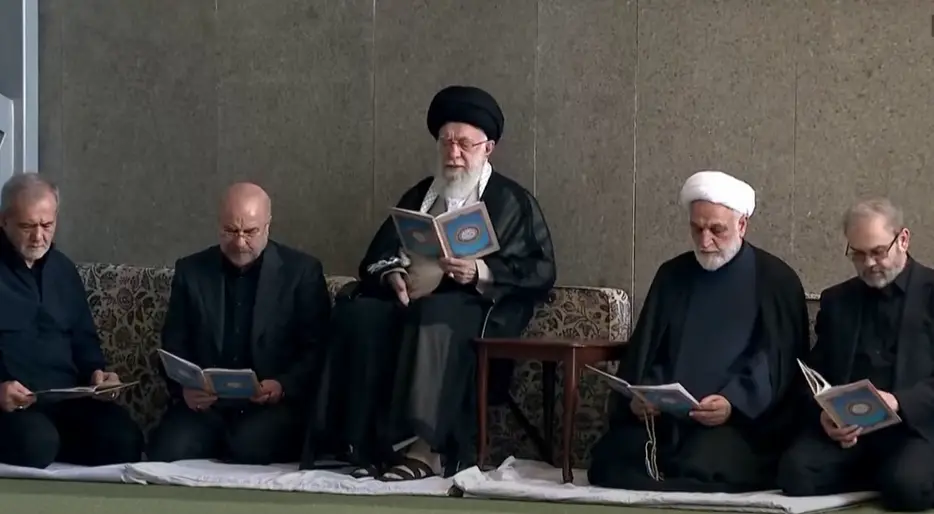
Iranian clerics have issued a chilling fatwa calling for the assassination of Donald Trump, with a $30 million bounty allegedly raised for a drone strike at Mar-a-Lago
From Soleimani to Shirazi: The Fatwa That Crossed Borders
USD 30M Fatwa Against Trump – The roots of Iran’s vendetta against Donald Trump trace back to January 2020, when Trump ordered a drone strike that killed General Qasem Soleimani, head of Iran’s elite Quds Force. The assassination was hailed by Washington as a counterterrorism victory but in Tehran, it was seen as an unforgivable act of war.
Fast forward to July 2025, and Iran’s response has taken a religious turn. Grand Ayatollah Naser Makarem Shirazi, one of Iran’s most influential clerics, issued a fatwa an Islamic legal decree branding Trump a “mohareb”, or enemy of God. Under Iran’s penal code, this designation carries punishments ranging from execution to crucifixion.
The fatwa, while not naming Trump directly, condemns any individual who threatens Iran’s Supreme Leader Ayatollah Ali Khamenei. Given Trump’s recent remarks about knowing Khamenei’s location and choosing not to kill him, the decree is widely interpreted as a religious justification for assassination.
Adding fuel to the fire, Iranian media outlets and clerics have circulated posters and videos suggesting Trump could be targeted by a micro-drone while sunbathing at his Mar-a-Lago estate. The imagery is disturbingly specific, with one cleric stating:
“As he lies there with his stomach to the sun, a small drone might hit him in the navel. It’s very simple.”
The $30 Million Bounty: Blood Money or Psychological Warfare?
Beyond religious rhetoric, Iran’s campaign has taken a financial turn. A website allegedly linked to regime sympathizers launched a fundraising platform, dubbed the “blood pact”, to collect donations for Trump’s assassination. Reports suggest that over $30 million has already been raised.
The bounty is framed as a “divine mission”, with slogans invoking martyrdom and jihadist doctrine. Posters show Trump’s face marked with a red target, accompanied by Quranic verses and calls to “fight with wealth and lives”.
Western intelligence agencies are treating the threat seriously. The U.S. Secret Service has reportedly reinforced Trump’s security detail, and counterterrorism experts warn that lone wolf actors or sleeper cells could be activated.
Former National Security Advisor John Bolton stated that Trump remains “at the top” of Iran’s assassination list, and that the regime’s terror network is “extensive in Europe and the United States”.
Critics argue that Iran’s use of proxy media and religious decrees allows it to incite violence while maintaining plausible deniability. As one analyst put it:
“This is how the Iranian regime exports terrorism without leaving fingerprints.”
Global Fallout: Diplomacy, Sanctions, and the Terrorism Debate
The fatwa and bounty have triggered international condemnation. United Against Nuclear Iran (UANI), led by figures like Jeb Bush and Tom Tugendhat, called for immediate sanctions against Iran’s top clerics, including Makarem Shirazi and Khamenei’s son Mojtaba.
They urged the U.S. Justice Department to seek indictments and INTERPOL Red Notices for issuing threats against internationally protected individuals.
“The Iranian regime’s medieval and barbaric threats must not go unanswered,” their statement read.
Meanwhile, Trump responded with characteristic bravado, claiming he had “saved Khamenei from an ugly death” and accusing Iran of lying about its victory in the recent 12-Day War with Israel.
The incident has reignited debates over religious extremism, digital incitement, and the role of fatwas in modern geopolitics. While some argue the decree is symbolic, others warn it could embolden radicals and destabilize diplomatic efforts.
Iran’s clerics maintain that the fatwa is a spiritual obligation, not a political directive. But in a world where religious edicts can inspire real-world violence, the line between theology and terrorism grows increasingly blurred.
Conclusion:
Iran’s fatwa against Donald Trump, paired with a $30 million bounty and threats of drone assassination, marks a dangerous escalation in asymmetric warfare. As global leaders weigh their response, the episode underscores the volatile intersection of religion, revenge, and geopolitics. Whether symbolic or actionable, the threat is real and the world is watching.
Stay updated with the latest news on Rapido Updates. Keep yourself updated with The World, India News, Entertainment, Market, Automobile, Gadgets, Sports, and many more
Khamenei Defies Trump’s “False Ceasefire”: Iran Vows Resistance Amid Rising Tensions
1 thought on “Drone Threat and Divine Decree: Iran’s USD 30M Fatwa Against Trump Sparks Global Alarm”